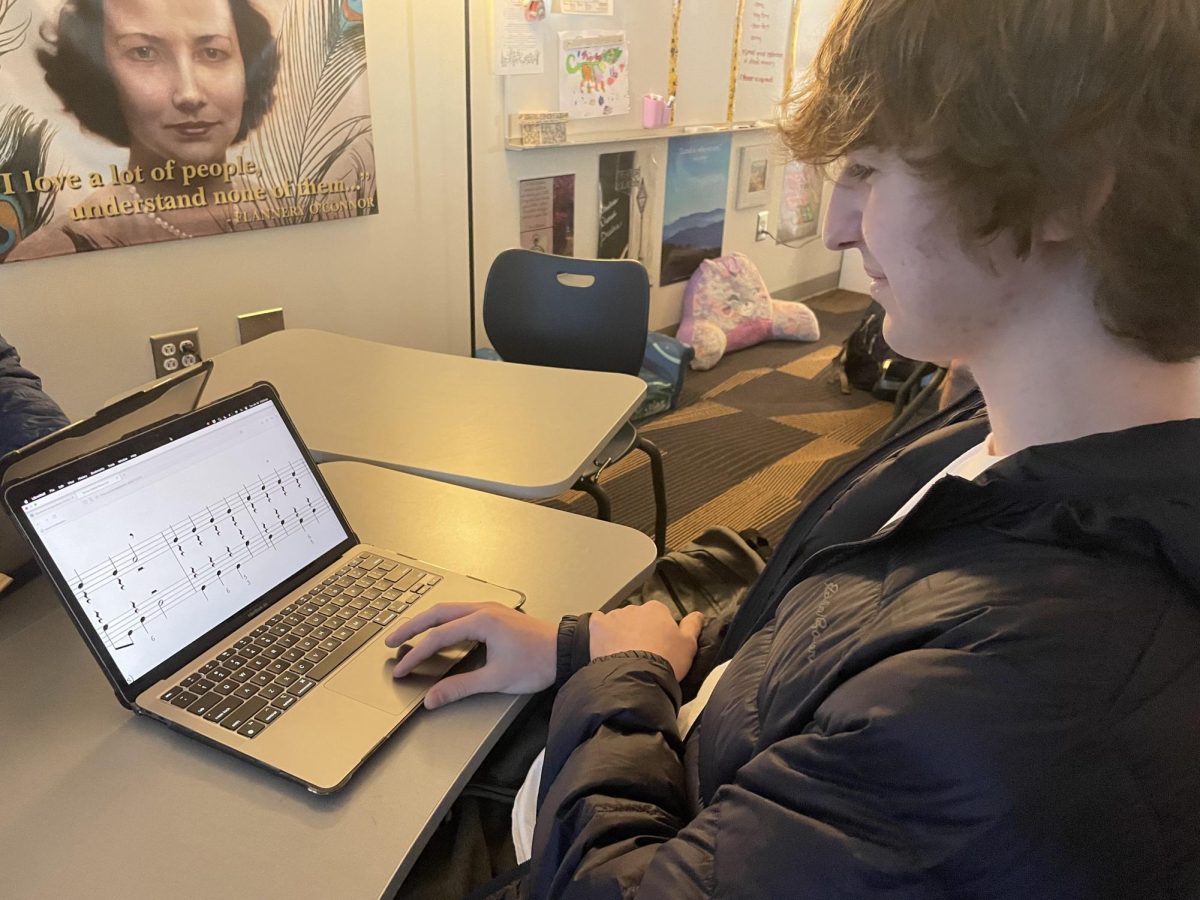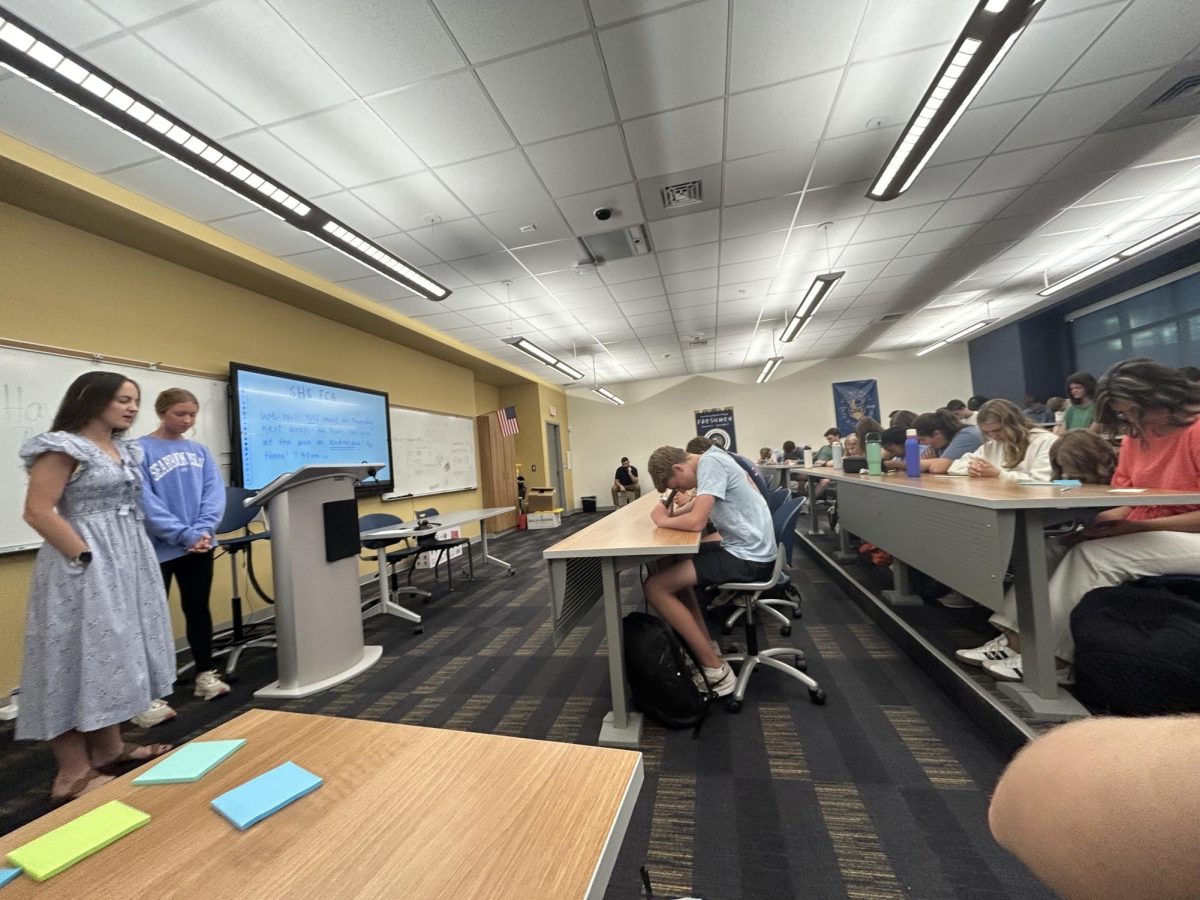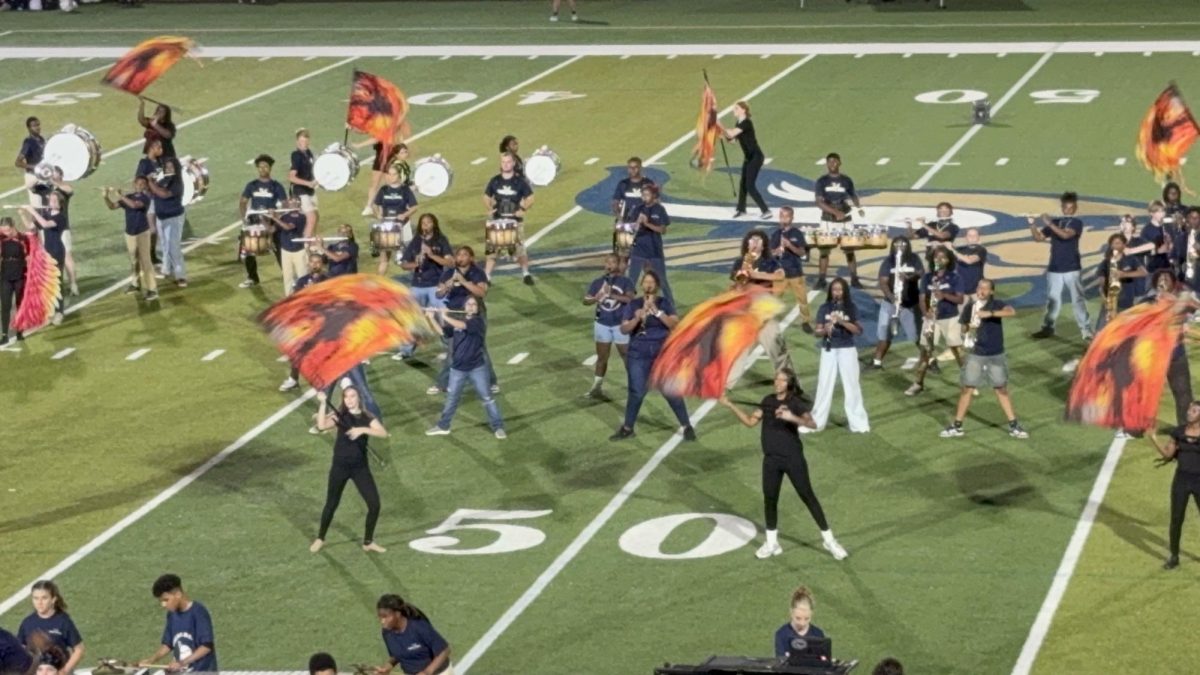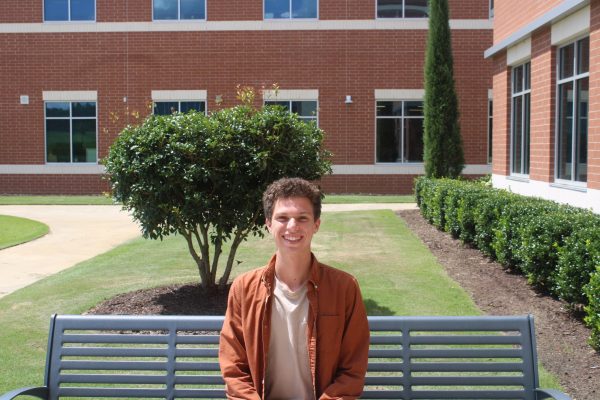Music is something that everyone experiences in different ways, but it is a part of our existence as humans, especially today when music is so easy to find. Whether it’s singing the lyrics of a favorite song in the car or performing a symphony with an orchestra in Carnegie Hall, everybody has music embedded within themselves. However, most people are not aware of the intricacies involved with the creation and production of music. Luckily, Spartanburg High School offers a variety of classes for anyone interested in learning more about how music works.
Dr. Kenneth Tice is a second-year teacher at SHS, and he teaches Music Technology, Piano, Music Appreciation and AP Music Theory.
“Music has always been a big part of my life. In High School, I decided I wanted to be a choir director. Recently I felt the desire to change up my day-to-day career, and this job became available,” Tice said. “There is always more to learn and experience with music. As a lifelong learner, I keep my mind and ear open to new music and information. I enjoy sharing that with my students, and learning from them as well.”
In these classes, students have the opportunity to learn a wide range of ideas centered around different aspects of music. The piano class teaches basic skills of how to navigate a piano, while music technology shows students how to utilize software and hardware used by music producers. Music appreciation is a unique class about different styles of music and how they differ from each other, while AP Music Theory teaches the foundations of how music works at a college level.
Molly Bryant (10) is a violist and pianist. She is involved in SHS’s Jazz and Marching Bands, along with the Symphony and Chamber Orchestras.
“Music theory is something I’ve always neglected to study as a musician, so when an in-depth class on it was recommended to me, I decided to take the opportunity. Much of what Dr. Tice teaches is completely new to me. I love that I’m learning about challenging and unique topics that I can apply when I play both piano and viola,” Bryant said.
Musicians usually find music theory very helpful to their understanding, but it can also be very challenging. College music majors are required to take four semesters of music theory, and even very talented musicians can struggle trying to figure out pitch relationships and harmonic progressions.
Jackson Hall (12) is a percussionist in the SHS Percussion Ensemble, Marching Band and Jazz Band. Hall is a very skilled vibraphone player, and he believes that his musical level wouldn’t be where it is without a knowledge of music theory.
“I decided to take AP Music Theory to challenge myself academically in a course about something I really enjoy. My favorite thing about AP Music Theory is how it provides a baseline understanding of how music works,” Hall said. “Once you learn about other types of music outside of AP Music Theory, you can apply your knowledge to genres from rock to pop to jazz. I stand by the belief that you have to learn the rules to break the rules, especially in music.”









